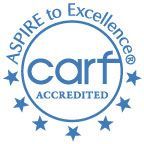IEP Advocacy & School-Based Interventions in East Point, GA
At EdgeCare 360, we believe every child deserves the tools and support they need to thrive—both emotionally and academically. That’s why we offer IEP advocacy and school-based mental health interventions to help families navigate special education services, behavioral challenges, and school system complexities with confidence. If your child is struggling at school, we’re here to advocate, intervene, and guide you through the next steps.
Helping Students Succeed—With Support That Goes Beyond the Classroom
What Is IEP Advocacy and School-Based Intervention?
An Individualized Education Plan (IEP) is a powerful tool—but the process can feel overwhelming for families trying to access services, secure accommodations, or understand their child’s rights. Our licensed professionals provide direct advocacy, observation, and intervention support for students who:
- Have learning, behavioral, or emotional challenges
- Are not progressing academically or socially
- Struggle with school refusal, anxiety, or attention issues
- Have been identified as needing special education or 504 plans
- Are dealing with trauma, family instability, or mental health diagnoses that impact learning
We help families navigate the IEP process, communicate effectively with schools, and advocate for appropriate supports and services. We also work alongside school staff to implement behavior plans, provide onsite coaching, and create strategies that benefit both student and classroom.
Our School-Based Services Include:
- Attendance at IEP meetings as a parent advocate
- Behavioral observations and written recommendations
- Functional Behavioral Assessments (FBA) and support plans
- Teacher consultation and classroom coaching
- Crisis intervention and emotional regulation strategies
- Wraparound communication with school counselors, psychologists, and social workers
- Referral support for evaluations, therapy, or psychiatric services if needed
Whether your child attends public, private, or charter school—we work within the system to make it work for your child.
Why Families Partner with EdgeCare 360 for School Support
- Deep understanding of Georgia’s special education system
- Trauma-informed, culturally sensitive advocacy
- Collaboration with therapists, psychiatrists, and school teams
- Individualized plans that reflect your child’s whole needs
- Located in East Point, GA and serving metro Atlanta families
- Accepts Medicaid, Medicare, and private insurance when applicable
We’re not just here for your child—we’re here for you. Advocacy is emotional. We’ll stand with you every step of the way.
Get the Support Your Student Deserves!










